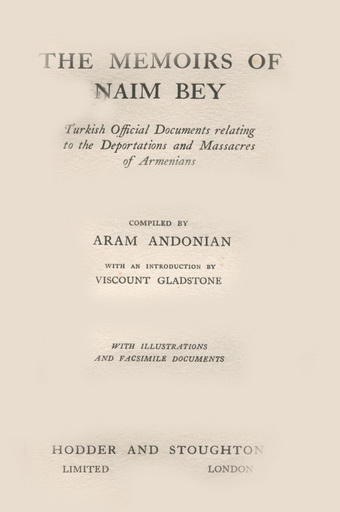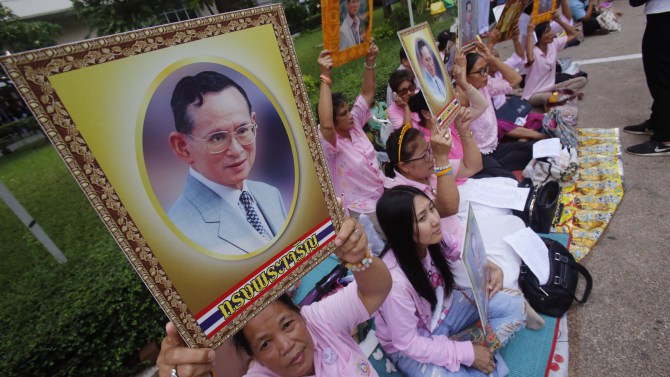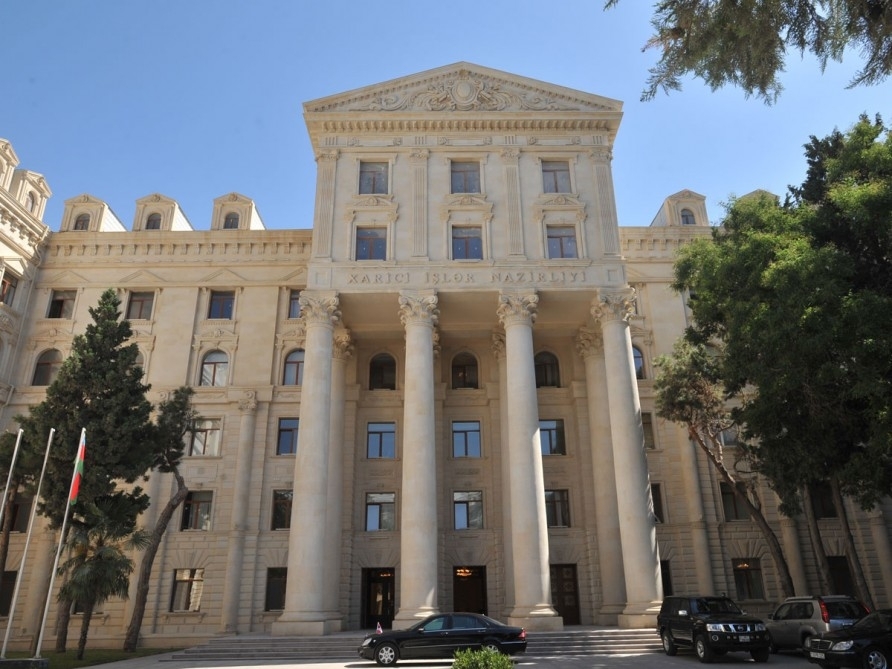
This article was written following the author’s presentation during the conference titled "21. Yüzyılda Türk Diplomasisi ve Dış Politika: Çok Kutuplu Dünyada Yeni Perspektifler" ("Turkish Diplomacy and Foreign Policy in the 21st Century: New Perspectives in a Multipolar World") held in the memory of Ambassador (R) Bilal Şimşir at Ankara University's Faculty of Political Sciences, Mülkiye/Civil Service Şeref Hall on Thursday, 28 March 2024.
Information Regarding Retired Ambassador Bilal Şimşir’s Brilliant Career And The Necessity Of Him Being Commemorated With More Than One Title:
Retired Ambassador Bilal Şimşir, who passed away on November 20, 2023 last year, should be commemorated with various titles. Ambassasor Şimşir, an honorary member of the Turkish Historical Society, is primarily a research oriented historian, academic and a diplomat who served in the Ministry of Foreign Affairs for 38 years until he reached the position of Ambassador. Apart from his bright diplomatic career, it needs to be underlined that Bilal Şimşir is one of the senior member of Turkish historians and an exceptionally prolific researcher. He has written over 100 books covering a wide range of topics related to the Ottoman Empire, the Republic of Türkiye and the Turkish presence in the Balkans. He has written approximately 250 articles. Bilal Şimşir, the holder of these intertwined and admirable titles, was commemorated by one of his colleagues, a retired Ambassador, on his passing as follows:
“He was a young man who immigrated to Turkiye with his family when he was still in high school and chose to become a historian and then a diplomat. A scholar who served Turkishness greatly and a patriot who dedicated his life to Turkishness. An exemplary idealist and a successful ambassador. A faithful advocate of Balkan Turkishness.”[1]
Bilal Şimşir's Academic And Diplomatic Life, The Scope Of His Work And Detailed Information On His Commitment to Balkan Turkishness:
A brief review of the list of books prepared by Bilal Şimşir, which were based on his research deep in the archives and conducted with a noteworthy degree of patience, faith and sacrifice, reveals what a prolific historian, scholar and diplomat he was. When we group the titles of his books, we observe that books on Atatürk, the national struggle, the Treaty of Lausanne, the history of Turkish diplomacy, the Aegean issue and the Armenian issue constitute the main portfolio of his work. In addition to these, his books on Kurdism, Turk Jews, Ottoman Armenians, Ankara, should also be mentioned.
In my judgement , the primary emotional and social motive that guided all of Bilal Şimşir’s work and gave him the drive to continue his work with faith was his Balkan Turkishness. Within this context, it is necessary to briefly recall Bilal Şimşir’s curriculum vitae.
Şimşir was born in 1933, in the Yılancılar Village of Bulgaria’s Osmanpazarı (Omurtag). He completed his primary and secondary education in the private schools of the Bulgarian Turkish community. Afterwards, he enrolled in a Bulgarian high school (Gimnazya) where there were only three Turkish students out of 800 students. However, due to the rising anti-Turkish sentiment in Bulgaria and the discrimination he faced at school, he was forced to leave the high school. In 1950, his family came to Turkiye as immigrants and settled in Gallipoli. He continued his high school education, which he had to leave due to discrimination, at Çanakkale High School in 1950 and graduated from there. In 1957, he graduated from the Political Department of the Faculty of Political Sciences, which was one of the most prestigious faculties of the period and which required a special entry exam. He worked as Prof. Ahmet Şükrü Esmer's assistant at the History of Diplomacy Department of the same faculty for three years and then joined the Ministry of Foreign Affairs in 1960. He served as First Secretary and Counsellor at the Turkish Embassies in Paris, Damascus, London and the Hague, and as Chief of Section , Head of Department, Deputy Director General and Director General at the Ministry. He represented Türkiye as Ambassador in Albania, China, Australia and South Pacific countries. After 38 years of service, he retired in 1998. Bilal Şimşir, who narrated his life story in the video prepared by the Turkish Historical Society within the framework of the "Yaşayan Tarih" (Living History) program, stated that while working as an assistant in the Faculty of Political Sciences, he wrote articles for the weekly newspaper "Anayurt" (Homeland), which was published by Turks who had immigrated from Bulgaria, and that he wrote many of the leading articles published in this newspaper at that time.[2]
One of Bilal Şimşir's most important works, and in my judgement perhaps the most important one, is his three-volume book titled "Rumeli’den Türk Göçleri" (Turkish Emigrations from the Balkans/Rumelia), in which he documents the torment and suffering faced by the Balkan Turks and especially the Turks in Bulgaria. In the 182-page Preface of the second volume of this book, which in fact resembles a standalone book, Şimşir explains why he used the name "Rumelia" instead of Balkans with an emotional yet academic approach. In this framework, he states that the period from the beginning of the 1877-78 Turkish-Russian War until the annexation of the Eastern Rumelia Priviliged Province to the Principality of Bulgaria was an extremly important period in the history of the Ottoman Empire’s disintegration. He explains that during the Empire’s disintegration, the lands of Rumelia were largely severed and the masses of Rumelia Turkish people were largely uprooted from their centuries-old homeland.
According to Bilal Şimşir, Anatolian Turkishness and Rumelia Turkishness constituted the founding element and the essence of the Ottoman Empire. Unlike the previous Turkish states, the Ottoman Empire was not only an Asian state. It was both an Asian and a European state. It was founded on the shores of the Marmara Sea. It soon spread to the west of Marmara, to the Balkans, to Rumelia. After that, it spread and grew symmetrically on both sides of the Marmara axis. The first capital of the state was Bursa in Anatolia and the second capital was Edirne in Rumelia. With the conquest of Istanbul, the state regained its natural capital and geopolitical balance: Anatolia in the east, Rumelia in the west and the capital Istanbul in the center. These were the original homeland or metropolitan lands of the Ottoman Empire.[3]
Bilal Şimşir, who is devoted to the Turkish existence in the Balkans, explains the reason for using the name Rumelia in the title of his book for this region instead of the name Balkans, although it is a Turkish word, as follows:
“The word 'Rumelia', which we have been using for a long time, was a more rooted word for us than the word 'Balkans'. It had a historical meaning... Our grandfathers had called those regions 'Rumelia' since they first conquered them. Within the Ottoman-Turkish Empire, Rumelia had an importance equivalent to Anatolia... An Ottoman-Turkish Empire without Anatolia or Rumelia was unthinkable. When the Rumelia wing was severed, the Ottoman-Turkish Empire lost its balance and collapsed... Rumelia had a deep-rooted meaning in Ottoman history. Rumelia and Rumelia attacned words have taken root in all our history publications. These cannot be replaced by the word Balkans. The content of the word Rumelia is full of bittersweet memories and Turkishness. The word Balkans, on the other hand, is not so full of Turkishness. It was ordinary for Rumelia, which was within the homeland territory of the Ottoman-Turkish Empire, to be full of Turkishness. This situation of the past is one of the sweet memories of the Turks. It is also a normal and nationalistic feeling that the loss of Rumelia, and thus the collapse of the Ottoman-Turkish Empire, has left 'bitter memories' in the hearts of past Turkish generations... The word ‘Rumelia’ is deeply rooted in Turkish. All these idioms, which preserve the bitter-sweet memories of the Turks, have an emotional and effective aspect. Using the word Balkans instead of these changes the meaning significantly, and even leads to loss of the meaning. In this respect, the word "Balkans" cannot fully match the word "Rumelia". Both historically and emotionally, the term Rumelia is more deep-rooted and more effective than the term Balkans. For all these reasons, I used the term Rumelia in the Turkish title of my book. However, in order to indicate a certain geographical region in terms of geography, I found it appropriate to use the term Balkans in foreign languages instead of Rumelia.”[4]
It is possible to say that Bilal Şimşir carefully balanced his emotional and highly nationalistic approach, which reflects a deep attachment to Turkish identity in this statement with his documentary explanations in his various academic studies on Balkan Turks. However, it should be underlined that his academic identity never prevented Bilal Şimşir from being a "staunch defender" of Balkan Turkishness. For example, in the Turkish Historical Society's "Living History" video, Şimşir states that when he first came to Turkiye, he thought of kissing the soil in Edirne and that when he was in high school in Bulgaria, he and his friends sang the song "Look at the stone of Ankara, look at the tears of my eyes, we were captured by the Bulgarians, mind our cruel fate ". Another example: In 1990, in the dedication section of his publication containing documents titled "The Turks of Bulgaria in Internatonal Fora Documents", he wrote the following in Turkish: "With the deepest respect to the cherished memories of the heroic Turkish martyrs who gave their lives in defense of their Turkish name and identity against the cruel Bulgarians." In the context of Turkish migration from the Balkans, Şimşir examines the discussions on the concepts of migration, immigrant, immigration, fugitive/incomer, refugee, refugee, emigrant, fugitive, refuge, refugee with an academic understanding, and draws attention to the fact that the migration of Balkan Turks to Türkiye has a meaning beyond such academic discussions. He states that it is natural that the sufferings of Balkan Turks leave a mark on the Rumelia Turks who have experienced these sufferings like him. Bilal Şimşir underlines that the guiding definition for him in this regard was Atatürk's words "Muhacirler kaybedilmiş ülkelerimizin milli hatıralarıdır” (Refugees are the national memories of our lost countries).[5]
The Value of Bilal Şimşir’s Legacy, Meaning of the Conference, Expressions of Praise and Gratitude for Carrying Forward His Work To Future Generations:
An important aspect of Bilal Şimşir's books, which he has written by blending his historian, academic and diplomatic identities, is that while presenting archival documents on a particular subject chronologically for the readers, he also explains the subject in an academic manner with his extensive introductory chapters. An outstanding example of this approach is his 1976 two-volume book "Ege Sorunu- Belgeler" (The Aegean Problem - Documents) in which he utilized Turkish and British archival documents. While examining the Aegean Problem going back to the Balkan Wars, Şimşir points out the importance of the navy and explains in detail that the Ottoman Empire lost the Aegean Islands due to its weakness against the Greek navy at that time, and that the Ottomans, who lost the naval race, also lost the naval wars. He states that Greece, thanks to its strong navy at the time, controlled the sea routes in the Aegean, cut the Ottoman supply routes, created an outpost line that would keep the Dardanelles under control by occupying the island of Limnos, and imprisoned the Ottoman navy behind the straits. Bilal Şimşir states that Greece maintained this superiority of its navy thanks to the US and the UK, which supported it with donations for years, and that when Turkiye started oil exploration in the Aegean with the support of its navy on May 30th, 1974, "The Economist" magazine made the following assessment:
“Turkey is challenging Greece's supremacy in the Aegean for the first time since 1912, when Admiral Koundouriotis drove the Turkish fleet off to the Dardanelles with the battleship Averof.”[6]
Bilal Şimşir emphasizes that the Turkish navy gained superiority in 1974 for the first time since the Balkan War and even since the Navarin raid, and that Türkiye continued to consolidate its naval superiority despite the arms embargo imposed by the United States due to the Turkish Peace Operation in Cyprus. These assessments made by Bilal Şimşir 48 years ago are still valid today. It is possible to say that these examples are indicators of the academic legacy Bilal Şimşir left us.
On the occasion of this conference organized at the Faculty of Political Sciences, which contributed greatly to his upbringing, I commemorate Bilal Şimşir with respect and gratitude for conveying the facts about Turkish History to future generations through his works, and I offer my respects.
*Image: AVİM
[1] Halil Akıncı, “Bilal Şimşir Vefat Etti”, Milli Düşünce Merkezi (blog), 20 Kasım 2023, https://millidusunce.com/bilal-simsir-vefat-etti/.
[2] #YaşayanTarih - Emekli Diplomat ve Tarihçi Bilal Şimşir, 2021, https://www.youtube.com/watch?v=wwpNOwiPhB0.
[3] Bilâl N. Şimşir, Bulgaristan Türkleri : (1878-1985), 1. basım, Bilâl N. Şimşir / Bilâl N. Şimşir; 2; 38 (Ankara: Bilgi Yayınevi, 1986), 9.
[4] Bilâl N. Şimşir, Rumeli’den Turk Gocleri : Belgeler = Documents, c. II, Türk Tarih Kurumu Yayınlarından; Sa. 50; Sa. 50 (Ankara: Turk Tarih Kurumu Basimevi, 198M.S.), XIX-XXI.
[5] Şimşir, II:XXI.
[6] Bilâl N. Şimşir, Ege sorunu : belgeler, c. I, Türk Tarih Kurumu yayınlarından; sa. 29-<29a> (Ankara: Türk Tarih Kurumu Basımevi, 1976), LV.
© 2009-2025 Center for Eurasian Studies (AVİM) All Rights Reserved
No comments yet.
-
 DISTORTING THE HISTORY THROUGH THE REALNESS OF NAİM BEY
DISTORTING THE HISTORY THROUGH THE REALNESS OF NAİM BEY
Teoman Ertuğrul TULUN 04.01.2017 -
 ARBITRARY AND CARELESS DISCOURSES DEGENERATE THE LEGAL DEFINITION AND CONTENT OF THE TERM GENOCIDE
ARBITRARY AND CARELESS DISCOURSES DEGENERATE THE LEGAL DEFINITION AND CONTENT OF THE TERM GENOCIDE
Teoman Ertuğrul TULUN 21.04.2022 -
 THE SHATTERING OF REGIONAL ANCHOR FOR STABILITY: THE PASSING OF KING BHUMIBOL ADULYADEJ
THE SHATTERING OF REGIONAL ANCHOR FOR STABILITY: THE PASSING OF KING BHUMIBOL ADULYADEJ
Teoman Ertuğrul TULUN 28.11.2016 -
 CONSTRUCTIVE EURASIANISM: REVISITING DEFINITIONS
CONSTRUCTIVE EURASIANISM: REVISITING DEFINITIONS
Teoman Ertuğrul TULUN 08.01.2025 -
 ARMENIA, EU AND A NEW FRAMEWORK FOR ECONOMIC ASSISTANCE
ARMENIA, EU AND A NEW FRAMEWORK FOR ECONOMIC ASSISTANCE
Teoman Ertuğrul TULUN 27.07.2018
-
 THE ECHR PERINCEK V. SWITZERLAND CASE: THE GRAND CHAMBER HAS RULED IN FAVOR OF DOGU PERINCEK
THE ECHR PERINCEK V. SWITZERLAND CASE: THE GRAND CHAMBER HAS RULED IN FAVOR OF DOGU PERINCEK
Aslan Yavuz ŞİR 14.10.2015 -
TAL BUENOS AND TÜLİN DALOĞLU’S INTERVIEWS ON THE 1915 EVENTS
AVİM 01.07.2015 -
 THE ARMENIAN PRESS IS MAKING FALSE NEWS
THE ARMENIAN PRESS IS MAKING FALSE NEWS
Berfin Mahide ERTEKİN 20.11.2019 -
 THE NEW PRESIDENT OF THE EUROPEAN PARLIAMENT AND EUROPE'S FREEDOM VALUES
THE NEW PRESIDENT OF THE EUROPEAN PARLIAMENT AND EUROPE'S FREEDOM VALUES
Hazel ÇAĞAN ELBİR 11.02.2022 -
 THE “GOLDEN ERA” OF CHINA-UK RELATIONS
THE “GOLDEN ERA” OF CHINA-UK RELATIONS
Ali Murat TAŞKENT 02.11.2015
-
25.01.2016
THE ARMENIAN QUESTION - BASIC KNOWLEDGE AND DOCUMENTATION -
12.06.2024
THE TRUTH WILL OUT -
27.03.2023
RADİKAL ERMENİ UNSURLARCA GERÇEKLEŞTİRİLEN MEZALİMLER VE VANDALİZM -
17.03.2023
PATRIOTISM PERVERTED -
23.02.2023
MEN ARE LIKE THAT -
03.02.2023
BAKÜ-TİFLİS-CEYHAN BORU HATTININ YAŞANAN TARİHİ -
16.12.2022
INTERNATIONAL SCHOLARS ON THE EVENTS OF 1915 -
07.12.2022
FAKE PHOTOS AND THE ARMENIAN PROPAGANDA -
07.12.2022
ERMENİ PROPAGANDASI VE SAHTE RESİMLER -
01.01.2022
A Letter From Japan - Strategically Mum: The Silence of the Armenians -
01.01.2022
Japonya'dan Bir Mektup - Stratejik Suskunluk: Ermenilerin Sessizliği -
03.06.2020
Anastas Mikoyan: Confessions of an Armenian Bolshevik -
08.04.2020
Sovyet Sonrası Ukrayna’da Devlet, Toplum ve Siyaset - Değişen Dinamikler, Dönüşen Kimlikler -
12.06.2018
Ermeni Sorunuyla İlgili İngiliz Belgeleri (1912-1923) - British Documents on Armenian Question (1912-1923) -
02.12.2016
Turkish-Russian Academics: A Historical Study on the Caucasus -
01.07.2016
Gürcistan'daki Müslüman Topluluklar: Azınlık Hakları, Kimlik, Siyaset -
10.03.2016
Armenian Diaspora: Diaspora, State and the Imagination of the Republic of Armenia -
24.01.2016
ERMENİ SORUNU - TEMEL BİLGİ VE BELGELER (2. BASKI)
-
AVİM Conference Hall 24.01.2023
CONFERENCE TITLED “HUNGARY’S PERSPECTIVES ON THE TURKIC WORLD"









